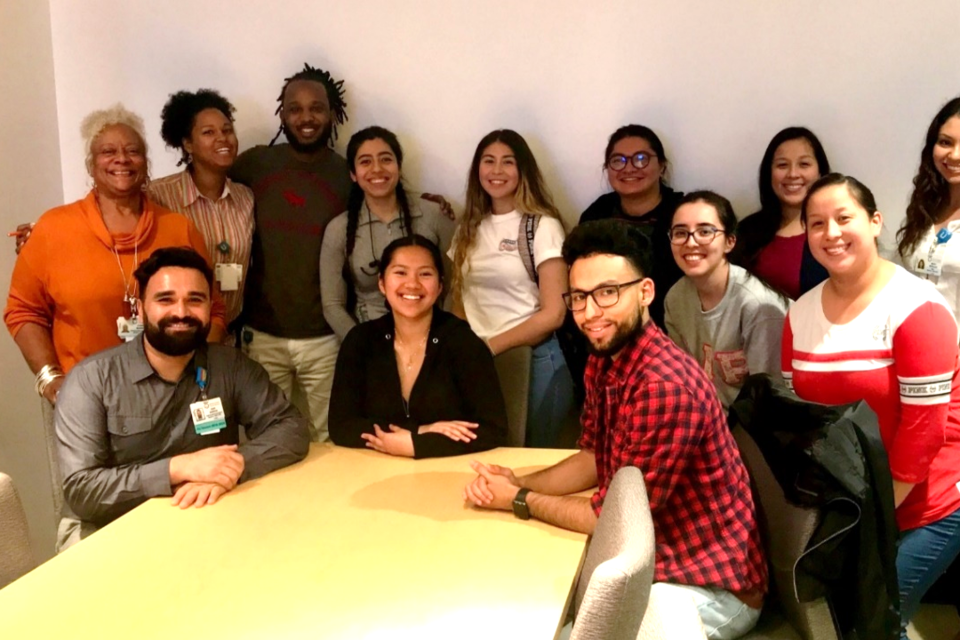Team Science Training

Multidisciplinary Team Training including Community Members or Patients
Development of a team-based training for community-partnered team for team building, relationship building, group problem solving. Materials adapted from a NSF-funding academic team science training with community stakeholders to better relate and engage with community members.
A team of CERP community partners, faculty, staff, and undergraduate students worked closely with Maritza Salazar, Ph.D. to modify a Team Science module on Communication Principles, designed initially for interdisciplinary academic teams, to be administered for community partnered teams are working on research projects spanning the translational spectrum. Modifications were made through a series of sessions where community partners observed the module, made recommendations to content, formatting, and presentation, and revisions were piloted. Examples of recommended modification included: 1) add icebreaker activity, 2) reducing jargon in slides and presentation, 3) audio record vignettes/scenarios of excellent communication, rather than assigning participants to read out loud, 4) changing exemplars from academic or hospital settings to community locations, 5) simplify team activity and change objectives to represent a community-academic partnered team.
The Community Engagement and Research Team plans to finalize the changes to the communication module and will prepare a train-the-trainer toolkit to disseminate to the CTSAs for use with community-partnered teams. The toolkit, which will be available on the CTSI website, will include experiential examples for facilitators to choose from that may be more applicable for different populations and teams. As the module is disseminated we will systematically test, through a series of surveys pre-session and 3- and 6-months post-session, the module's efficacy compared with original on team building, team cohesion, and ability to overcome divisions within the team.
Table below shows the results of expanding training to incorporate community-partnered team science.
Before
NSF-funded Academic Team Science Training
Developed by Maritza Salazar, PhD
- Introductions with titles and degrees
- Training included academic jargon
- Team activity: complex, hospital setting, different hierarchal roles for team members, team gives “correct answer”
- Takes place in basic science lab
- Scenarios are read aloud
- Jargon and a lot of text on slides
After
Community-partnered Team Science Training
Adapted in partnership with community stakeholders
- Added icebreaker to level the playing field
- Training is lay-language, fewer words
- Team activity: simplified, moved to community setting (high school), all team members are same level, team gives recommendations
- Takes place in high school setting
- Scenarios are audio recordings
- Simplified language and less text displayed
Toolkit Details: Team Science Training and Activity for Community-Partnered Teams
Objectives
The toolkit “Team Science Training for Community-Partnered Teams” offers template materials including presentations with transcripts, team activities with guidelines, and advice hosting a Team Science Training for Community-Partnered Teams. The toolkit aims to teach academic-community partner teams upon principles of team communication, inclusive discussions, and team-based communication scenarios for discussion. The team activity allows team members to act as health investigators to investigate an MRSA outbreak at a local high school, is designed to stimulate equilateral group discussion and highlights the importance of a diversity of roles at the table to solve problems.
Design: Presentation and Team Activity
Evaluation: The toolkit is free. To use the toolkit, a pre- and post-evaluation will be requested.
For training materials and workshop materials, please contact: cerp@mednet.ucla.edu.